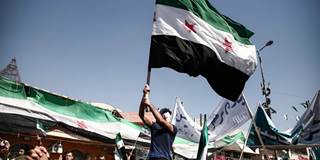OnPoint Subscriber Exclusive
Longer Reads provide in-depth analysis of the ideas and forces shaping politics, economics, international affairs, and more.

Syria’s Only Path to Peace
Throughout Syria’s seven-year-old conflict, the West – like Russia – has consistently put its own strategic interests before those of the country’s peaceful majority. Syrians want genuine democracy and equality under the law; but that will not happen until the extremists are removed from the equation.
PARIS – Last month, Russian President Vladimir Putin and Turkish President Recep Tayyip Erdoğan reached a deal to forestall a full-scale assault on Idlib by the Syrian regime. But even though the final “Battle of Idlib” has been avoided, that is no reason for the world to ignore what is still at stake in Syria.